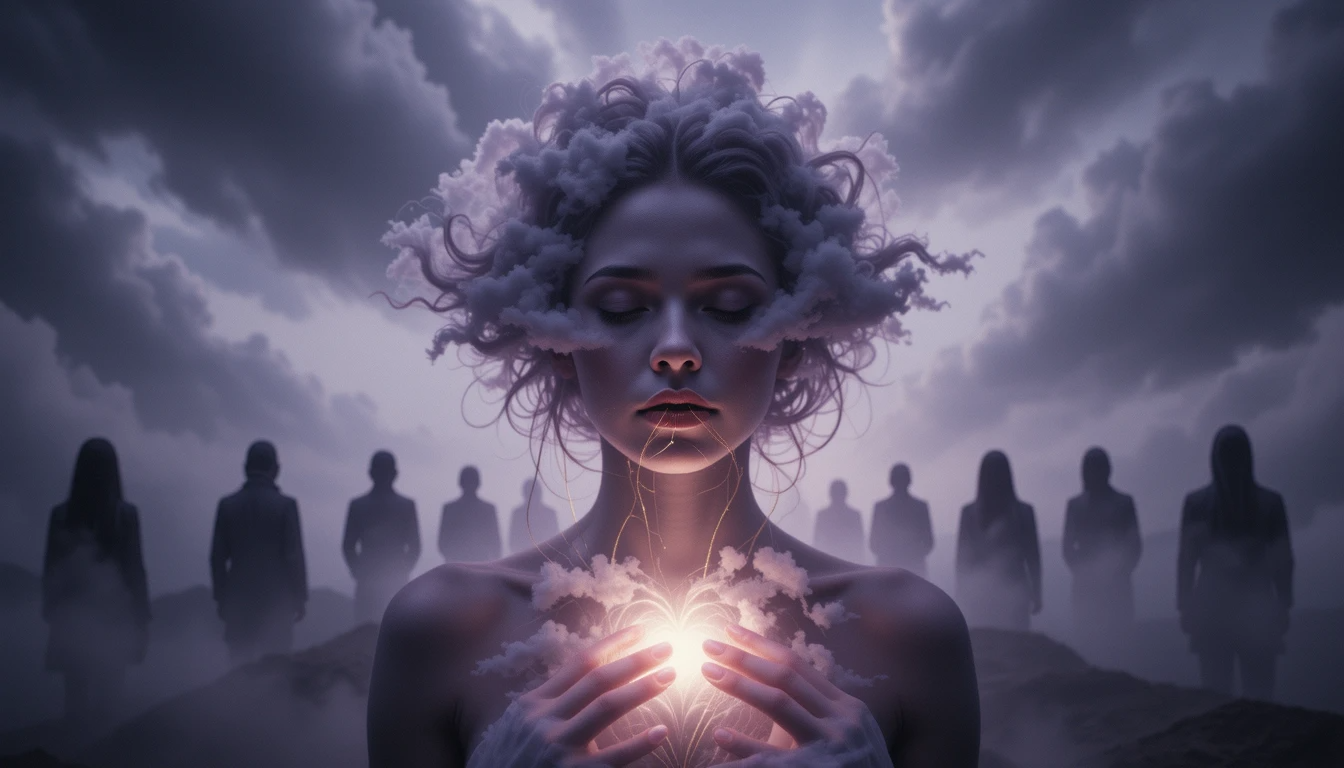I Was Taught to Swallow Thunder | We Don’t Talk About That by JBE Mindful Pathways

We Don’t Talk About That | JBE Mindful Pathways
🎧 Prefer to listen instead? Press play below to hear the story in audio format.
No one ever said it out loud.
Not once.
But somehow, I always knew.
I wasn’t supposed to raise my voice.
Or fall apart.
Or need too much.
Or say, “This hurts.”
I was taught to smile through it, to nod and be strong, to swallow my pain like medicine.
But what I swallowed wasn’t pain—it was thunder.
Generational, storm-born thunder.
The kind passed down in glances and silences and slammed cabinet doors.
The kind no one ever names, but everyone feels.
There are things we carry that don’t belong to us.
Reactions that feel instinctual, but are actually inherited.
Fears we didn’t create.
Patterns we didn’t choose.
And still—we hold them. Like heirlooms made of grief.
I didn’t realize it until one night, I cried over something that shouldn’t have cracked me open the way it did. It wasn’t even about me—not really. A moment, a comment, a trigger that unleashed something ancient.
That’s when the words came, clear as lightning in my chest:
“This didn’t start with me.”
My silence didn’t start with me.
My shame.
My people-pleasing.
My urge to disappear the second things got too loud.
None of it started with me.
It started with my mother.
And hers.
And theirs.
A legacy of survival written in the margins of our emotions.
Some families pass down recipes and traditions.
Mine passed down endurance.
And a masterclass in emotional suppression.
I watched my mother fold into herself whenever she was overwhelmed.
Her silence was deafening.
I thought it meant strength—so I mimicked it.
I learned that emotions were private, messy, and too loud to be safe.
So I swallowed mine.
I swallowed fear, and rage, and questions.
I swallowed thunder until I forgot what it felt like to speak in storms.
But silence isn’t strength. It’s weight.
And it gets heavier with every generation that refuses to name the pain.
What I now understand is this:
We inherit more than genes.
We inherit unfinished grief.
We inherit the emotional debts our ancestors couldn’t pay off.
And the hardest part?
Sometimes we love the people who passed it down.
So we defend them.
We protect their memory.
We carry their pain quietly, like that somehow proves our loyalty.
But love doesn’t mean silence.
And healing doesn’t mean betrayal.
We can name the wound and honor where it came from.
We can stop the cycle and still love the ones who didn’t know how.
Because here’s what no one told me:
Healing isn’t about being ungrateful.
It’s about being honest.
Yes, we inherited thunder.
But we also inherited resilience.
The ability to laugh mid-collapse.
The wisdom to recognize a red flag without needing it to burn everything down first.
The sacred knowing that says: you don’t have to carry this anymore.
We are the interruption.
The generation that gets to unlearn.
The ones who set boundaries and take naps and write poems instead of punching walls.
The ones who cry in public and say, “I don’t know how to do this—but I’m trying.”
The ones who choose softness, even when it feels dangerous.
We are the storm that doesn’t destroy—we cleanse.
We don’t just swallow thunder.
We release it.
With words.
With truth.
With the unapologetic, revolutionary act of feeling.
So if you’re reading this and wondering why you’re so heavy—maybe it’s not all yours.
Maybe you were taught to hold what no one else could name.
Maybe this is your permission to put it down.
To speak it.
To grieve it.
To heal louder than the silence you were raised in.
You’re not too much.
You’re just finally full of everything that was never allowed to be said.
Let it out.
Let it echo.
Let it roar.
You were never meant to live small inside someone else’s storm.
You were meant to be the thunder they could never silence.
With grace, grit, and a love that refuses to quit.
Keep showing up—even when it feels like no one’s listening.
Your voice is powerful. Your story is breaking chains.
From one storm survivor to another—
With strength and softness,
~ Juju Divine Empress
Founder, JBE Mindful Pathways
Wellness Advocate | Writer | Mother | Still Learning, Always Loving
📚 Explore more soul-deep stories in the We Don’t Talk About That blog series.
Be the first to comment